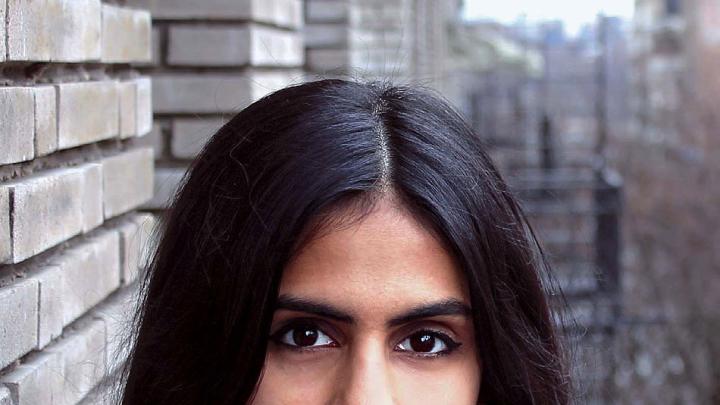Three vintage Bollywood posters brighten Durba Mitra’s basement office in Boylston Hall, each representing an archetype of the Indian woman: Mughal-e-Azam, a classic film about a Mughal courtesan’s doomed romance; Daasi, about a low-caste woman; and Dilwale Dulhania Le Jayenge, depicting “the well-behaved housewife,” Mitra says. “So I have all of these ‘types’ of women.” Indian cinema is a personal interest for Mitra, an assistant professor of women, gender, and sexuality, but it also reflects her scholarly interest in gender in South Asia. As a graduate student at Emory, she remembers, “I thought I would write a history of prostitution in modern India. But I realized that to do that, I had to ask bigger questions. Why was a person considered a prostitute? When a woman is called a prostitute, she’s often, in fact, not one.” Her first book considers, more narrowly, how prostitution is linked to ideas about social progress in modern India. Mitra views herself as “a historian, first and foremost,” and gender studies as a commitment “to foregrounding gender and sexuality as important analytical categories in many disciplines” where often “gender is seen as an aftereffect of ‘real’ politics.” Mitra saw gender from a young age, she says, perhaps the result of an upbringing that set her apart from her North Dakota peers. Her mother, an immigrant from India, raised two children alone while working and pursuing a Ph.D. “She not only pushed to be independent and intellectual, she also adhered to her own imagination of her culture. She wore a sari every day in Fargo in the ’80s,” Mitra says. “People imagine the South Asian immigrant as a person who’s constrained by family expectations. That was not my experience. My mom always wanted me to imagine different possibilities.”
Durba Mitra

Durba MitraPhotograph courtesy of Durba Mitra
You might also like
Breaking Bread
Alexander Heffner ’12 plumbs the state of democracy.
Reading the Winds
Thai sailor Sophia Montgomery competes in the Olympics.
Chinese Trade Dragons
How Will China’s Rapid Growth in the Clean Technology Industry Reshape U.S.-China Policy?
More to explore
Harvard Philosophy Professor Alison Simmons on "Being a Minded Thing"
A philosopher on perception, the canon, and being “a minded thing”







